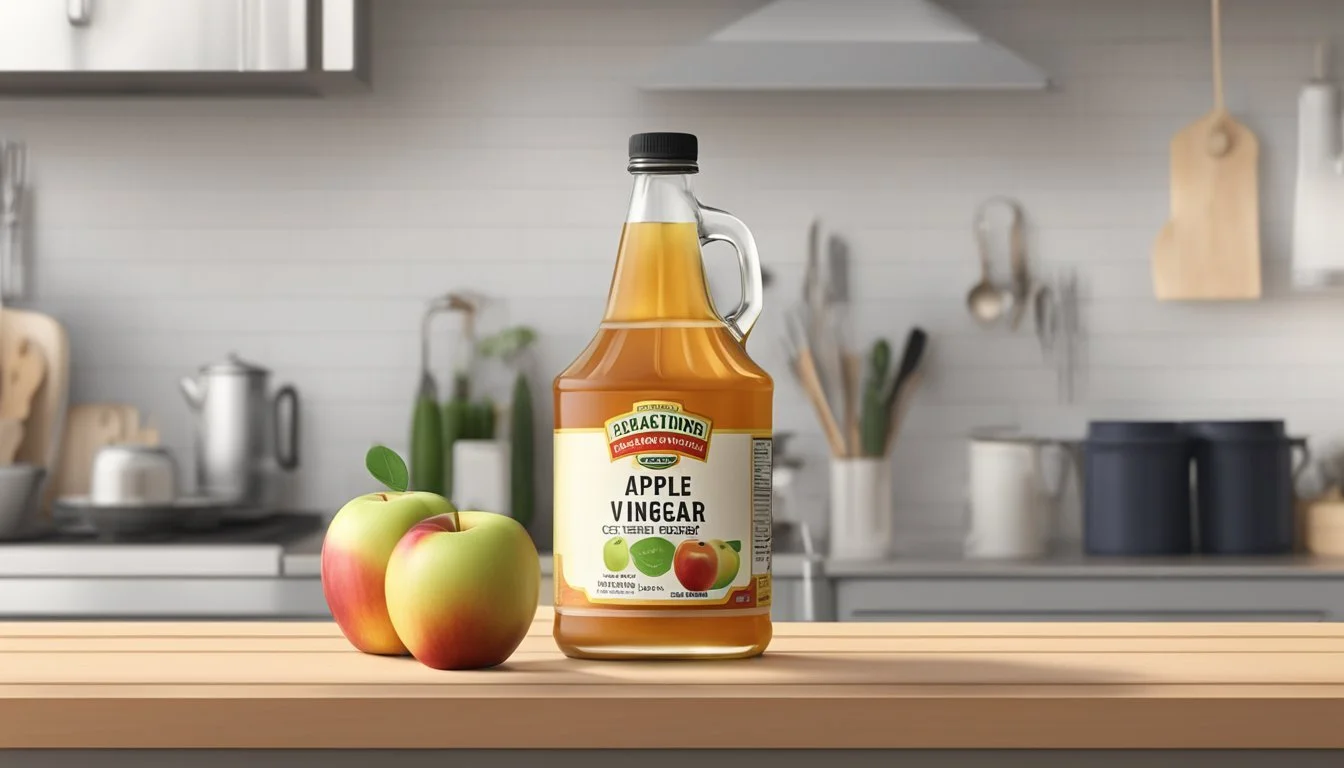How Long Does Apple Cider Vinegar Last?
Uncovering Its Shelf Life and Storage Tips
Apple cider vinegar is a staple in many kitchens and has been prized for its culinary and health benefits. Thanks to its acidic nature, it has a remarkably long shelf life compared to other condiments. The high acidity creates an environment that deters the growth of bacteria and fungi, essentially allowing apple cider vinegar to last for an extended period without spoiling.
When stored under optimal conditions, a sealed bottle of apple cider vinegar can maintain its quality for a very long time, often surpassing its printed expiration date. The typical range for expiration dates is between two to five years from the production date. However, even after opening, apple cider vinegar continues to be safe for consumption for a considerable time as long as it is stored properly. The main changes over time may be to the taste and potency of the vinegar, rather than its safety.
Properties of Apple Cider Vinegar
Apple cider vinegar, known for its acidic properties and versatility, has various attributes that affect its longevity and usage. Each characteristic lends insight into how apple cider vinegar can be stored and used, influencing its shelf life and potential health benefits.
Acidity and pH Level
Apple cider vinegar is highly acidic, primarily due to the presence of acetic acid. Its pH level typically ranges from 2.5 to 3.0, which is an indicator of its strength as an acid.
Composition and Varieties
This vinegar consists of crushed fermented apples (how long do apples last?), yeast, and sugar. It comes in multiple varieties, such as organic, filtered, unfiltered, and those containing 'mother', a strand-like sediment of beneficial bacteria involved in creating vinegar through the process of fermentation.
Shelf Life Indicators
The absence of traditional expiration dates on apple cider vinegar bottles suggests its longevity. Indicators such as change in color, development of sediment, or a cloudy appearance may affect quality, but not necessarily safety.
Antimicrobial Nature
The antimicrobial properties of apple cider vinegar allow it to inhibit the growth of certain bacteria like E. coli and Candida albicans. This contributes to its status as a self-preserving and long-lasting substance.
Storage Conditions
To maintain optimal quality, apple cider vinegar should be stored in cool, dark places away from direct sunlight. Exposure to light and fluctuating temperatures can affect its color and flavor.
Changes Over Time
With time, apple cider vinegar may become cloudier and develop sediment at the bottom of the bottle. These changes usually don't indicate spoilage but rather natural processes such as further fermentation.
Pasteurization and Filtration
Pasteurized and filtered vinegars are clear and free of the "mother." In contrast, unfiltered vinegar may contain remnants of the fermentation process and appear murkier due to the presence of the vinegar mother.
The Role of 'Mother'
Containing traces of enzymes, proteins, and friendly bacteria, the 'mother' in apple cider vinegar is thought to contribute to its probiotic benefits. It's more prevalent in organic and unfiltered types.
Comparison with Other Vinegars
Comparatively, apple cider vinegar usually has a higher acetic acid content than other vinegars like white vinegar, rice vinegar (how long does rice vinegar last?), or champagne vinegar, which explains its robust antimicrobial effects and subsequent impact on shelf life.
Food Safety Concerns
Apple cider vinegar is generally safe to consume. However, as it ages, there is a slight risk of mold formation or spoilage, although this is not common due to its acidic nature.
Potential Health Benefits
The use of apple cider vinegar may offer health benefits, including possible effects on blood sugar levels and digestive health. Keep in mind these benefits often come from anecdotal evidence, and scientific support varies.
Safety and Usage Considerations
When using apple cider vinegar, it's important to dilute it due to its high acidity. Direct consumption of undiluted vinegar can be harmful to the esophagus, and its application on the skin should be done with caution to avoid irritation.



